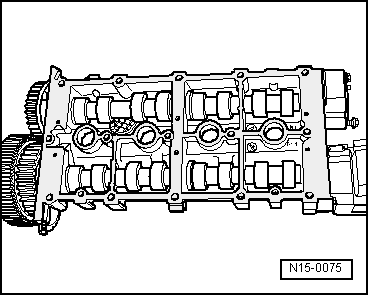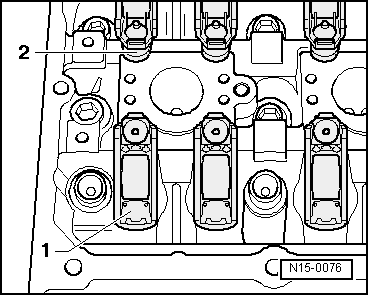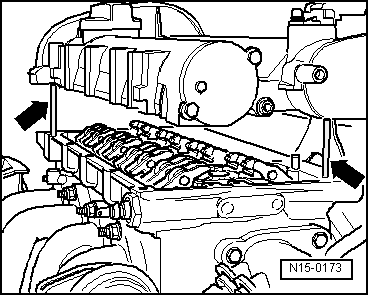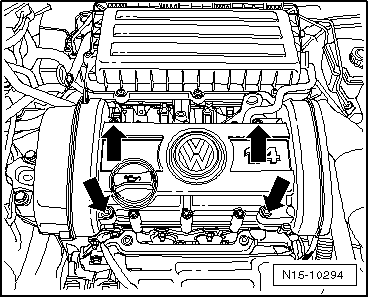
Caution | The studs (M6x80) must be screwed into cylinder head before installing camshaft housing. |
| The camshaft housing is guided by the studs, so that the roller rocker fingers do not slip off the supporting elements. |
|
| l
| The pistons must not be positioned at TDC. |
| l
| Camshaft pulleys locked into camshaft housing fitting holes with camshaft lock -T10016- and secured against turning. |
| –
| Remove sealant residue from cylinder head and camshaft housing with commercially available sealant remover. |
| –
| Also prevent dirt and residual sealant from entering cylinder head. |
| –
| Clean sealing surfaces carefully. They must be free of oil and grease. |
|
|
|
 Note
Note

 Note
Note Note
Note

 Note
Note

 Note
Note Note
Note
